IEEE EPPC Working Group on ICT
In 2014, the IEEE European Public Policy Initiative created two working groups on Energy and ICT. The ICT Working Group is comprised of 12 leading engineers from all walks of life, including academia, industry, and former government officials. The group meets virtually on a monthly basis and in person several times a year to develop technical policy statements and other documents (e.g., white papers, responses to consultations, etc.) on a wide range of issues with the aim of informing policy makers at the technical level on key topics in the ICT realm.
Through this Working Group, European IEEE members are able to participate in peer-selected volunteer groups that develop public policy position statements and may engage in or organize policy-related events.
IEEE EPPC Working Group on ICT
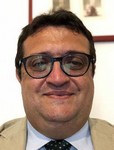 Giambattista Gruosso
Giambattista GruossoChair
Giambattista Gruosso is associate professor at Politecnico di Milano. He has 20 years of experience in research issues in electrical engineering and its links with ICT. For years he has been working on systems and components for Smart City, Smart Mobility and Smart Factory. He is director of the master Digital Skills for industry 4.0. He is secretary of the IEEE IES Committee on Transportation Electrification and is an active member of the IEEE Vehicular Technology Society. He is member of committees for the promotion of ICT for intelligent life. He was secretary of the Italian section of IEEE (2016-2019), member of the local board of engineers (Milan). He is currently also scientific head of the technical area of MADE (competence center for Industry 4.0)
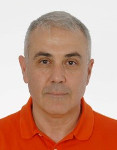 Constantinos M. Balictsis<
Constantinos M. Balictsis<Constantinos Balictsis holds a Ph.D. degree in electrical engineering and was a “Marie-Curie” post-doctoral fellow of the European Commission. He also holds a M.Sc. degree in Applied Economics and Finance.
He has served as senior ICT policy adviser to the Greek Secretary General for Communications. Since 2000, he has been with the Greek National Regulatory Authority for Telecommunications and Postal Services (EETT) involved in activities pertinent to the transition of the telecommunications sector from monopoly to full-liberalization and the introduction and promotion of sustainable competition.
He served as EETT’s first Telecommunications Director and exercises senior advisory and management functions including Department Head and Project Manager responsible for EU co-financed projects. In this role, he organized and supervised the efforts to identify the ‘holistic’ framework which addresses EETT’s operational and organizational restructuring requirements and also the efforts to identify and deploy the spectrum management and monitoring infrastructure which satisfies national demands. He supervised EETT’s efforts to submit the respective project proposals, to secure funding (exceeding € 38,0 million), he monitors the progress of the projects and reports to the responsible domestic and EU funding agencies.
He has participated in European Commission committees, at meetings with representatives from the IMF, the OECD, institutional and financial investors, international Regulatory Authorities and cooperated with domestic ministries and representatives of various foreign national entities.
He is actively involved in research, mainly on ultrashort/ultra-wideband electromagnetic wave propagation in passive/active dispersive media, metamaterials and biological tissues as well as on optical access networks. He gives presentations, domestically and abroad, on regulatory and technology issues pertinent to the electronic communications sector. He is a member of the IEEE and Optica.
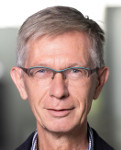 Mario Birkholz
Mario BirkholzMario Birkholz is Professor for Bioelectronics at Technical University Berlin and head of the Joint Lab Bioelectronics IHP/TUB founded by IHP and TU Berlin. A physicist by training, he joined IHP in 2004 as principal scientist for the development of semiconductor technology applications in biotechnology and medicine.
He is a member of the German Physical Society and IEEE and acted as co-organizer for various conferences (DPG, EMRS, BioProScale, BioCAS). Mario is main author of a scientific textbook, about 80 publications in scientific journals, ca. 200 conference contributions and invited talks, 25 patents, member of the editorial boards of Electronics, Section Bioelectronics, and Frontiers in Biotechnology and Bioengineering.
His research work focuses on the manipulation of biological cells with electrical effects and on medical sensors and implants. The technical developments led him to the subject of data security. His work is thus increasingly concerned with sustainable digitalisation and the protection of privacy.
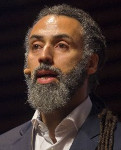 Ricardo Chavarriaga
Ricardo ChavarriagaRicardo Chavarriaga has more than twelve years experience in brain-machine interaction, computational neuroscience, and artificial intelligence. His work is focused on the conception of neurotechnologies that allow symbiotic interaction between human and intelligent machines. This is based on better understanding of neural correlates of cognition, development of artificial intelligent devices capable to adapt to their user’s goals, preferences and capabilities, and a user-centered design approach.
Highly interested on the translation of emerging technologies onto applications at service of society, he is the head of the Switzerland Office of the CLAIRE Initiative for excellence in AI, the chair of the IEEE group on standards for brain-machine interfacing and executive-in-residence at the Geneva Centre for Security Policy, and the chair of the publications committee of the IEEE Brain Initiative and member of the MIT Technology Review Global Panel.
Chavarriaga has a degree in Electronics Engineering from the Pontificia Universidad Javeriana in Cali, Colombia and a PhD in Computational Neuroscience from the Ecole Polytechnique Fédérale de Lausanne (EPFL) In Switzerland.
 Alexandra I. Cristea
Alexandra I. CristeaAlexandra Cristea is Professor, Deputy Executive Dean of the Faculty of Science, Director of Research and Founder of the Artificial Intelligence in Human Systems research group in the Department of Computer Science at Durham University.
Her research includes web science, learning analytics, user modelling and personalisation, semantic web, social web, authoring, with over 370 papers on these subjects (over 5700 citations on Google Scholar, h-index 39).
Alexandra’s work on adaptive systems has influenced many researchers and is highly cited. Along with leading many UK, EU and global projects, she has also been keynote/invited speaker, chair, organizer, co-organizer, panellist and program committee member of various conferences in her research field (including, for example, ITS, AIED, UMAP, ED-MEDIA, Hypertext, Adaptive Hypermedia, EDM, ICCE, ICAI). She is a BCS fellow, a HEA fellow, IEEE Senior Member and IEEE CS member, and an ACM member.
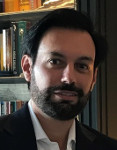 Antonio Flores
Antonio FloresAntonio Flores is a published author of eight books. With over 20 years of experience, he holds two M.Sc. in Engineering (Telecommunications and Electronics), an International Executive MBA from the top-ranked school IESE, and an M.Sc. in International Trade. He is an Associate Professor at Francisco de Vitoria University, the founder of four start-ups, and an executive in large international firms. Flores is a Technology Advisor in Artificial Intelligence, Robotics, and Extended Reality/Metaverse for the European Commission and a Senior Member of IEEE. He currently runs the Global Institute of Advisors as the CEO.
 Ali Hossaini
Ali HossainiAli Hossaini is Visiting Senior Research Fellow in Engineering at King’s College London, a Principal Investigator of the Health & Social Equity Collective, and co-director of National Gallery X, a founding partner of the UKRI Trustworthy Autonomous Systems Hub. He is the digital architect of the EIT Culture & Creativity KIC. With the UK's premiere security thinktank RUSI, he has contributed to AI policy by hosting conferences, editing its journal, and modelling potential threats from the perspective of biology.
His publications include a primer on neurophysiology for engineers, the Manual of Digital Museum Planning, and The Culture of Ecology, a manifesto for an engineering renaissance. Ericsson named him a 5G Trailblazer in 2020 and 2022.
He served in IEEE 7000 and IEEE 7001 working groups for ethical design of AI, and currently serves on the IEEE P2731 working group for brain-computer interface.
 Dimitrios Kalogeropoulos
Dimitrios KalogeropoulosDr. Dimitrios Kalogeropoulos is Chief Executive at Global Health & Digital Innovation Foundation, UK. He has a PhD in Medical AI and has advised the World Bank, the WHO, the EU Commission, UNICEF and Bill & Melinda Gates Foundation. Dimitris had an instrumental role developing health innovation ecosystems worldwide, and in resilience and recovery planning during Covid-19. Participating in policy think-tanks he contributed to the EU AI Act. In 2015 helped shape policy for Deepening Health Reforms in China, now implemented as Healthy China 2030. He is the founder and chair of the IEEE SA HLS Value Base Workstream. Previously IBM, CEO & Board Director, Dimitris served as advisor to start-ups in Europe and the U.S.A. He is Global AI Ambassador 2023, distinguished keynote speaker, judge and mentor in the Edison™ Accelerator, powered by GE Healthcare and Wayra UK, Health Exec in Residence at UCL, founding officer, chapter organizer and previously chair of the IEEE EMBS Greece Chapter.
 Panagiota Karadimitriou
Panagiota KaradimitriouPanagiota Karadimitriou completed her studies as an Electrical & Computer Engineer in Greece and then moved to Edinburgh to do a M.Sc. in Computer Science. It was at that time she discovered IEEE and became a member. She has a background of 20 years in IT, serving positions in the private sector, national administration, and EU administration. The last 7 years in leadership positions; as Coordinator or Head of Sector. Recently, she took up the endeavor to study again; this time an LLB in the University of London, driven by her strong interest in IT Law. With COVID, new opportunities arose for serving IEEE online. She is an IEEE-Standards member and participate in various standard committees or WGs in areas of her expertise, especially in emerging technologies. She has a great enthusiasm to contribute to our interesting online meetings and agenda and exchange views with the other members of this group.
 Cyril Onwubiko
Cyril OnwubikoDr. Cyril Onwubiko is Director, Enterprise Security Architecture at Pearson Plc. He is also Director, Artificial Intelligence, Blockchain & Cyber Security at Research Series Limited, where he directs strategy and governance in AI, Blockchain & Cyber Security. Prior to Research Series, he had worked in the Financial Services, Telecommunication, Health, Government, and Public Services Sectors. He is a leading scholar in Cyber Situational Awareness (CyberSA), Cyber Security, Security Information and Event Management (SIEM), Data Fusion, and Cyber Security Operations Centres (SOCs), and experienced in Information Assurance, HMG Security Policy Framework and Risk Assessment & Management. His work in AI, especially Machine Learning for Cyber Security demonstrates an ability to converge multiple applications of AI across business units (in many domains e.g. NLP, Deep Learning, Machine Learning and Data Science etc.), and applying these models to solve real world problems.
Cyril holds a Ph.D. in Computer Network Security from Kingston University, London, UK; M.Sc. in Internet Engineering, and B.Sc., first class honors, in Computer Science & Mathematics. He has authored several books including "Security Framework for Attack Detection in Computer Networks" and "Concepts in Numerical Methods." He co-edited the book on "Situational Awareness in Computer Network Defense: Principles, Methods & Applications". He is the editor of the Cyber Science series, and Editor-in-Chief of the International Journal on Cyber Situational Awareness (IJCSA), ISSN (Print) 2057-2182, (Online) 2633-495X. Cyril has authored several book chapters and has published over 30 peer-reviewed articles in leading and most prestigious academic journals and conferences.
He is a Senior Member IEEE, Distinguished Speaker (DVP), IEEE Computer Society, Past Secretary, IEEE United Kingdom and Ireland, Past Founding Chair, IEEE United Kingdom and Ireland Blockchain Group. And a member of many IEEE Societies and Affinity Groups e.g., Computer Society, Young Professionals, etc. He is also a Trustee, Director and Volunteer to other Charity organizations.
He is a passionate speaker, keynote presenter, and invited guest lecturer to a number of universities in the UK, and has given many invited lectures, the most recent being at the Cyber Science 2019 conference at the University of Oxford, UK. He is a reviewer, program & steering committee member to over 30 academic conferences and journals. He is a Ph.D. assessor and examiner to a number of universities in the UK and Europe.
In the summer of 2014, Cyril founded the Centre for Multidisciplinary Research, Innovation, and Collaboration (C-MRiC), a not for profit and nongovernmental organization dedicated to the advancement of outstanding research and innovation through collaboration, and dissemination of scientific and industrial contributions through seminars and publications (https://www.c-mric.com).
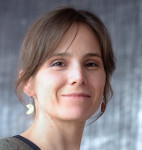 Ana-Lucia Varbanescu
Ana-Lucia VarbanescuAna-Lucia Varbanescu holds a B.Sc. and M.Sc. degree from POLITEHNICA University in Bucharest, Romania. She obtained her PhD from TUDelft, The Netherlands, and continued to work as a PostDoc researcher in The Netherlands, at TUDelft and VU University in Amsterdam. She is a MacGillavry fellow at University of Amsterdam, where she was tenured in 2018 as Associate Professor. Since 2022, she is also Professor at University of Twente. She has been a visiting researcher at IBM TJ Watson (2006, 2007), Barcelona Supercomputing Center (2007), NVIDIA (2009), and Imperial College of London (2013). She has received several NWO grants (including a Veni grant) and she is co-PI for the GraphMassivizer EU project. Ana-Lucia is an expert for the EU Commission and the co-chair of IPN EDI group.
Ana's research stems from HPC and investigates the use of heterogeneous architectures for high-performance computing, with a special focus on performance and energy efficiency modeling for both scientific and irregular, data-intensive applications. Her latest research focuses on energy labels for digital services, zero-waste computing, and systems co-design.
 Paolo Volpato
Paolo VolpatoPaolo is with the European Standardization and Industry Development (SID) department of Huawei where he holds a role in IP Product Management. Paolo is based in Milan, Italy, and has been working for 25+ years in telecommunications, with focus in networking technologies. Prior to joining Huawei, he worked for different companies, both technology vendors and network operators.
In his current job, he is involved in the technical work of standard bodies such as the IETF, BBF and ETSI. He is co-author or contributor of a number of drafts, documents and best current practices in the areas of IPv6, segment routing, SDN, and 5G backhauling. He is one of Huawei’s representatives in the World Broadband Association (WBBA). A portion of his job is dedicated to keeping the relationship with the stakeholders in TLC (customers, industry fora, telecom authorities). He usually gives speeches at industry events and conferences.
If you have any questions and/or comments, please write to eppc@ieee.org:
Massimo Pellegrino
European Public Policy Program Manager
IEEE Technology Centre GmbH
Heinestrasse 38
1020 Vienna, Austria
m.pellegrino@ieee.org
IEEE European Public Policy e-newsletter
To stay updated on IEEE public policy activities and engagement opportunities in Europe, please sign up to the quarterly e-newsletter.
Organizations in which IEEE is a member
IEEE Organizational Units in Europe






